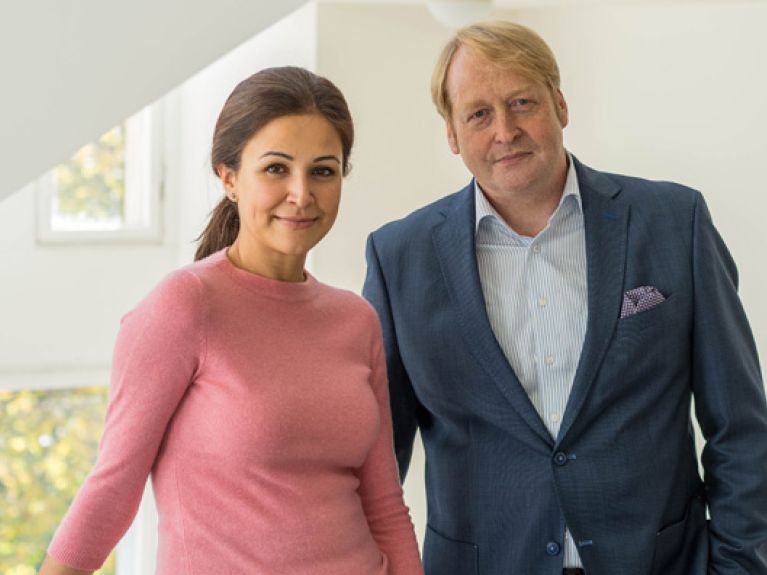Offering shelter
Universities lend a helping hand: two American initiatives for scholars in need are also being supported in Germany.

In August 2014 the time had come: Andreas Dittmann, a professor in Giessen, boarded the institution’s own bus and went to collect Hussein Almohamad, a professor in Aleppo, from Frankfurt Airport. The Syrian expert in physical geography was waiting there with his wife and three children – having already been on the road for nine months: from Syria into Turkey, and from there, after a long wait for a visa, to Germany. The family were saved from undertaking the dangerous overland journey by a programme that helps academics to settle in a safe place: the Scholar Rescue Fund (SRF) at the Institute of International Education (IIE) in New York. Since 1921, the time of the Russian Revolution, it has dedicated itself to the cause of academic freedom. Applications are open to academics as well as institutes and institutions who want and are able to take on a researcher, which means they must provide the same amount as the SRF, generally 25,000 dollars a year. as well as an appropriate teaching post of course, or a research group or laboratory.
This is precisely what happened in Almohamad’s case. In 2009 he completed a PhD at the Justus Liebig University in Giessen. He returned to Syria, but contact was maintained and until the civil war he would guide Giessen students through Syria every year. Later, when he was stranded in the eastern Turkish city of Gaziantep, he and Andreas Dittmann applied from two sides for support from the SRF, and Hussein Almohamad now has a post as a visiting professor in Giessen through 2016. According to Andreas Dittman, he represents “a real bonus for the institute”.
The SRF – in which eleven universities and one Max Planck Institute are involved in Germany alone – is one of two institutions headquartered in the USA, with the support of which academics can also find refuge in Germany. The second is the network called Scholars at Risk (SAR). The Free University (FU) of Berlin is currently the only public German university to be part of that organization. Since 2011 the FU has taken on four SAR bursary-recipients – as well as one applicant (co-)financed by the SRF. The first to be offered refuge was Iranian literature professor and author Neda Soltani, who was subject to massive reprisals at the time of the disputed re-election of President Ahmadinejad – incidentally, as a result of a mix-up. She has been working on her doctorate at the FU ever since. She was followed by two more Iranians and two Syrian postdoctoral scholars. As FU coordinator Stefan Rummel reports, the contacts came about in various ways: “Those already living in Germany often write to us directly; connections with FU colleagues also play a role.” Most academics, however, apply directly to the Scholars at Risk headquarters in New York City. The organization reviews each applicant’s academic suitability and the risks they face. In each case the bursary is for a fixed term only.
The same goes for the SRF funding received by Giessen visiting professor Hussein Almohamad, which runs out in 2016. And then? “I would like to work in Syria again one day,” he says, “but in 2016 that’s likely to be virtually impossible.” So he and Professor Dittmann are again on the lookout. And they might be in luck: at the end of October 2015 the Federal Foreign Office and the Alexander von Humboldt Foundation launched an initiative for persecuted academics. The new Philipp Schwartz Bursary Programme will support German universities that want to temporarily take on foreign researchers fleeing war or persecution. ▪

